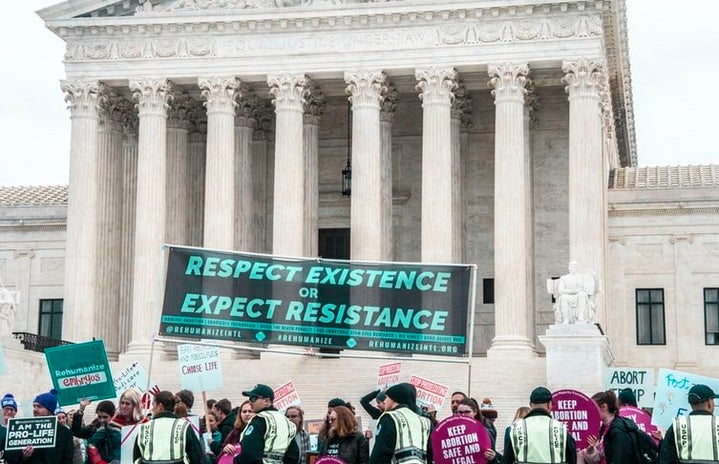Texas, a crucial component of the ultra-conservative south, has passed legislation detailing that a woman’s right to abort her pregnancy ends at six weeks in the state. The notorious “Texas Heartbeat Bill” that was signed into law earlier this year, and finally went into effect on Sep. 1, has caused much controversy throughout the country this week.
The law expresses that at six weeks from conception, there is detectable fetal cardiac activity, which is considered a Texan’s life that legislators aim to protect under the law. It also endorses that anybody who is not a government official and who suspects a person of having had an abortion has the right to sue anybody who “aids and abets” in that practice—from the person who drove them to the abortion clinic, to the doctor who committed the procedure, to any organization or donor who helped finance it. If found guilty of assisting in an abortion, this may result in the plaintiff, who does not need to have any connection whatsoever to the defendant, receiving up to $10,000 in compensation from the defendant and “an injunction preventing a provider from performing any more abortions after six weeks of pregnancy,” according to Florida State University College of Law Professor, Mary Ziegler. This law also makes no exceptions in the case of incest or rape but permits them if the pregnancy presents a danger to the woman.
The unprecedented legalities and the eloquence throughout the bill make it difficult to challenge in court. According to Ziegler, a law concept called “‘sovereign immunity,’ which typically prevents someone seeking to block a state law from suing the state itself,” is what led the legislators to allow for private citizens to be the ones to sue those promoting abortions. This law famously dissents with the United States Supreme Court’s decision of Roe v. Wade in 1973. As a response to this law, this week, the Supreme Court has voted 5 to 4, with a conservative majority concurring with it.
To illustrate the discussion, moreover, at six weeks, a woman has only missed her menstruation for two weeks, and she may not have any other symptoms alluding to the possibility of pregnancy. Therefore, by the time she realizes that she could be pregnant, she may have a limited time to consider her options, if any at all.
Through intersectional feminism, this law simultaneously affects women of color, low-income households and immigrants, among a variety of other women. This raises other concerns such as those related to the higher-than-average mortality rate of black women during childbirth.
In addition, this is creating a domino effect in which governors, and other state officials, such as that of South Dakota, are increasingly considering similar legislation. This law may very well become the first stepping stone toward enforcing such legislation in other states in the country, which is anticipated from conservative ones such as Alabama and Mississippi. As for Florida, a swing, yet increasingly conservative state, based on trends of recent general elections, this is something that could be potentially developing in upcoming years.
Furthermore, during the 2020 Florida legislative session, similar restrictive measures were taken when Sen. Kelli Stargel, R-Lakeland, introduced a bill in which he defined the guidelines under which a minor should have an abortion as parents needing to be notified and granting consent for the procedure to take place. As of earlier this week, Florida Senate President Wilton Simpson, R-Trilby, has announced that they are working on drafting a similar heartbeat bill for the 2022 legislative session.
Women have spent centuries dissenting against the patriarchy. Undoubtedly, women will continue to struggle with this for years to come. However, as this society continues to navigate through this fourth-wave feminism, we begin to identify how these issues affect women, and the better recognized they are, the better they can be understood and therefore also solved.
Want to see more HCFSU? Be sure to like us on Facebook and follow us on Instagram, Twitter, TikTok, YouTube and Pinterest!



